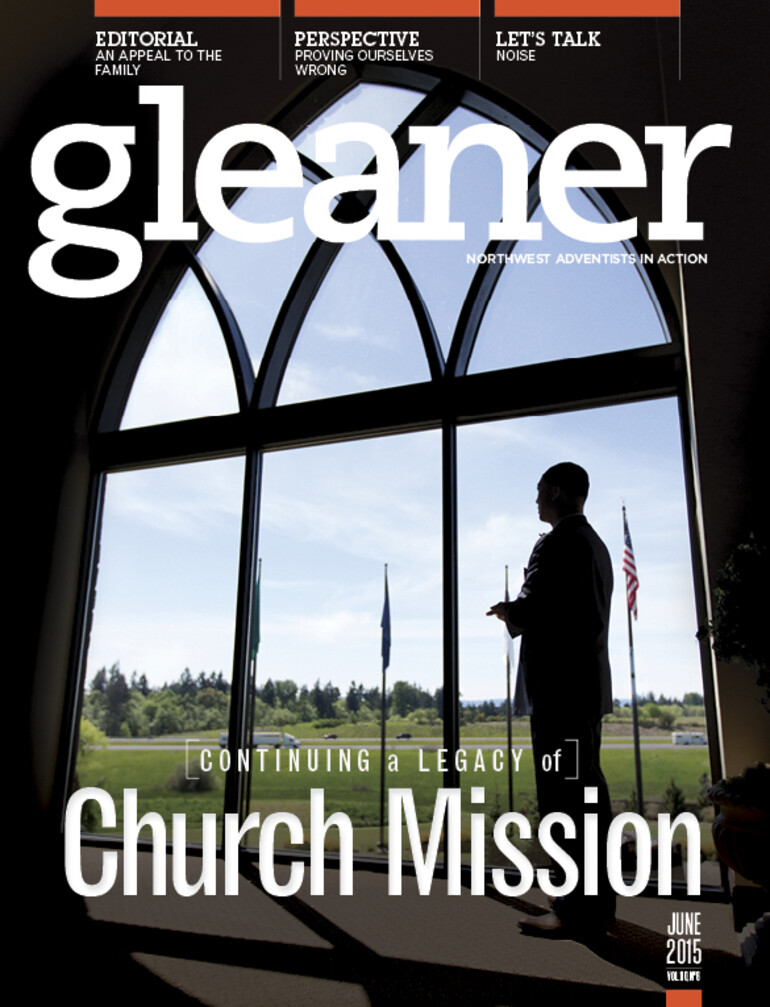The mission of the Christian church is to prove how right we are … right?
While we would deny this in person, our practices reveal otherwise. Christians love a good social media fight — with someone always managing to gleefully threaten hellfire to those who believe in Darwinism, agnosticism, neo-atheism or any other ism that conflicts with their ism — the whole thing ends up looking like sadism.
Incidentally, I wonder if any Adventist has ever threatened hellfire to those who believe in eternal hellfire (“My hell’s hotter than yours! You’ll see!”).
Christians debating non-Christians is also a favorite pastime in American culture. The world of apologetics has produced an entire industry of books, videos, online courses and even world tours featuring Christianity’s “expert witnesses” (Josh McDowell, William Lane Craig, Ravi Zacharias, etc.) whose important scholarly contributions inadvertently move away from the biblical “eye witness” (1 John 1:1–4).
Within the Adventist tribe, our main method of bringing people into the fold is the multiweek prophecy series — which, if we are honest, is more about Adventist belief as found in Bible prophecy than a systematic study through Daniel and Revelation. Over the course of two to five weeks, pastors and evangelists meticulously prove out from the Bible Adventist doctrine and call those whom the Spirit convicts to make a commitment in baptism and church membership.
Weeks and weeks (and thousands of dollars) are put forward to prove our propositional truth. This is how we carry forth our mission and, according to sage advice, we “keep people how we win them” — meaning if our church life isn’t spent proving out doctrine and eschatology, people lose interest in the faith and drift away. Not only that, but less and less of our postmodern/post-Christian culture responds to this kind approach to truth.
I recently chatted with one of the Pacific Northwest’s successful evangelists who told me after sending out tens of thousands of fliers offering Bible studies, they received only seven positive responses. Even though it's spun as the “best method” we have, our “best” is increasingly not good enough — and it's time we recaptured a fundamental truth about the truth we have.
Swedish philosopher Soren Kierkegaard articulates the issue nicely: "Christianity is no doctrine … . What modern philosophy understands by faith is really what is called having an opinion or what in everyday language some people call 'to believe.' Christianity is made into a teaching; this teaching is then proclaimed to a person, and he believes that it is as this teaching says. Then the next stage is to 'comprehend' this teaching, and this philosophy does. All of this would be entirely proper if Christianity were a teaching, but since it is not, all this is totally wrong.”1
In Kierkegaard’s words, we “didacticize”2 Christianity through the way we teach and defend our doctrine. The result is Christianity becomes about “what” instead of “Who.”
When Saul of Tarsus was confronted by the risen Savior, the Lord asked him, “Saul, Saul, why are you persecuting me?” (Acts 9:4). Jesus did not say why are you hating on my teachings, my worldview, my church (though Jesus closely identifies with His bride) — the issue was the person Jesus, the who not the what. Throughout the Gospels, people trying to follow God frequently missed the Who that the Scriptures and traditions pointed to (see John 5:39–40 and Luke 24:13–35).
After the Enlightment, Christianity has tried to keep step with the postpositivism (rational proving) employed by the sciences. One author writes, "The driving need to prove the scientific viability of Christian beliefs, the rational superiority of the Christian worldview, or the so-called case for Christianity signals an underlying preoccupation with mastery and control through rational dominance and a conviction that modern systematic theology done well yields the most enlightened form of the Christian faith."3
Penner goes on to point out that modern apologists and atheists share a fundamental agreement on ideology and methodology4 and that the “bottom line” for apologetics has become the “justification of belief … rather than on the personal edification of those we encounter.”5
Is this the way we are to share Jesus with other complex human beings? Is the essence of the faith just a set of teachings we can rationally prove? Have we forgotten that people are more than, in the words of Descartes, “things that think”? I believe the way forward in our witness is less “proving” and more “living” out the incarnated Christ within our hearts.
Ellen White says, "No argument can melt hearts ... . The gospel is effective only as it is proclaimed by hearts made warm and lips made eloquent by a living knowledge of Him who is the Way, the Truth, and the Life."6
This is more than simply a shallow appeal to be more practical or some oblique anti-intellectual philosophy. No, this is the art and science of being in the faith instead of just studying it, or teaching it, as an outsider.
This requires no less intellect — but it will require more courage, less control and more faith. Let’s stop proving ourselves wrong by inadvertently reducing Christianity to a set of teachings and instead demonstrate its true power by being in Christ while being in the world we have been called to witness to.










